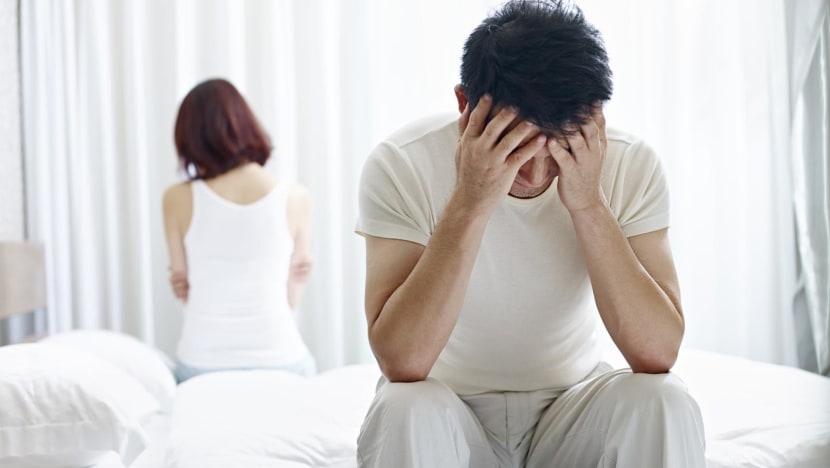More than just embarrassment: Why erectile dysfunction should be taken seriously
Erectile dysfunction can be a sign of early health problems, and a heavy mental burden that reduces one’s enjoyment of life.

Erectile dysfunction can lead to emotional distress and relationship conflicts. Photos: Shutterstock
Far from being a rare medical concern, erectile dysfunction (ED) is poised to affect as many as eight in 10 men in Asia during their lifetime.
Defined as difficulty in getting or sustaining an erection sufficient for sexual intercourse, ED can stem from various physical and psychological causes. Obesity, lifestyle choices like smoking, chronic ailments such as diabetes, high blood pressure and heart disease, certain medications, as well as psychological issues like stress, anxiety and depression can all contribute to the onset of ED.
According to Dr Jose Vicente T Prodigalidad, a urologist at Makati Medical Centre, Philippines, a typical ED assessment involves eliminating possible organic causes to ensure that any associated health problems are identified early.
“I normally request for blood chemistry tests to rule out issues like diabetes and hypercholesterolemia (high blood cholesterol levels). It is also important to rule out cardiac disease as ED may be a preliminary predictor of future cardiac events, especially in younger individuals in whom ED would not be expected,” he said.
UNDERSTANDING THE RISK FACTORS
The rise in the incidence of diabetes, high cholesterol and obesity in Asia may lead to a corresponding increase in the prevalence of ED, said Dr Prodigalidad. Singapore, for example, has already observed a rise in ED cases due to its ageing population.
“The development of comorbidities as one ages may contribute to the risk of ED increasing with age,” he explained. “Also, one’s hormonal levels may decline as one ages, leading to reduced libido and ED.”
Contrary to popular belief, younger men are not immune to ED. An estimate suggests that 50 per cent of men over 30 years old in Singapore experience this condition. For some, their lifestyle choices may be to blame – smoking and alcohol intake have both been established as risk factors for ED. According to Dr Prodigalidad, smoking negatively affects vasculature and may lead to decreased perfusion – the passage of blood through vessels.
“Chronic consumption of large amounts of alcohol may also damage one’s nerves and blood vessels, increasing the risk of both cardiovascular disease and ED,” he said.
To address ED through lifestyle changes, Dr Prodigalidad recommends a well-balanced diet, weight control and regular exercise. “Exercise, in particular, has been proven to lessen the risk for ED, especially if initiated early in mid-life,” he shared.
THE MENTAL BURDEN OF ERECTILE DYSFUNCTION

ED’s impact extends beyond the physical domain, burdening men with mental distress and diminished self-esteem. Despite advances in ED treatment, Dr Prodigalidad has observed that some men still find it difficult to disclose their condition to a doctor, especially in the presence of their partners.
“Men who experience ED often feel poorly about themselves,” he said. “Their inability to perform sexually can spill over into other aspects of their lives, affecting their productivity as they question their ability to perform other tasks and responsibilities.”
Moreover, ED affects not only the individual but also their partners. “Partners of men who have early signs of ED may feel that the men no longer find them attractive, and their self-esteem takes a hit as well. This can give rise to conflicts within the relationship. Correcting ED can alleviate some of these issues.”
Ultimately, ED should be treated before its ramifications extend beyond the realm of sexual intimacy, he cautioned. “ED may affect one’s demeanour, work and relationships. It is important for a man who has ED to realise that his doctor is there to listen and help him find solutions, and that he has someone who understands the problems and who will not judge him.”
Speak to your healthcare provider to find out more about how erectile dysfunction can be treated with medication and lifestyle changes.















